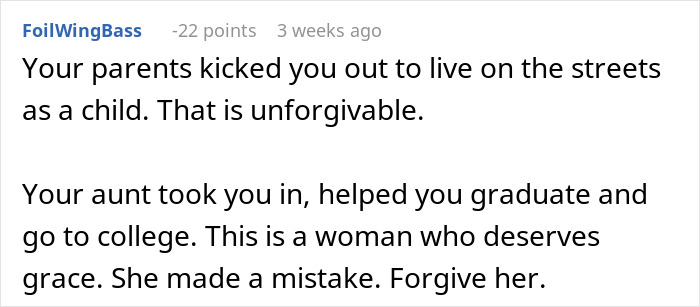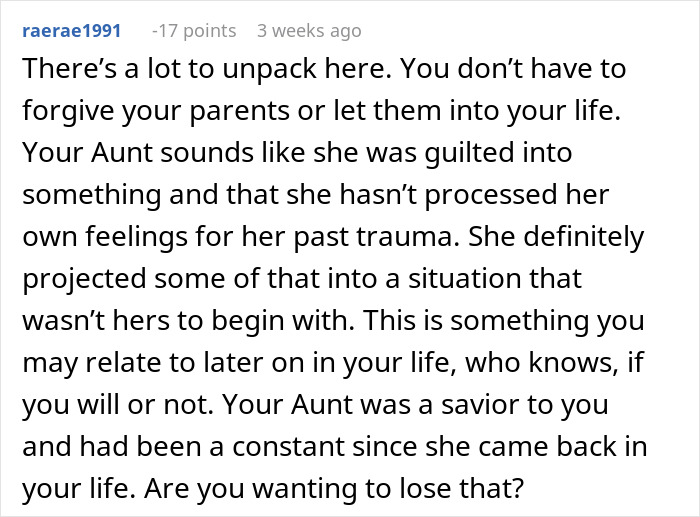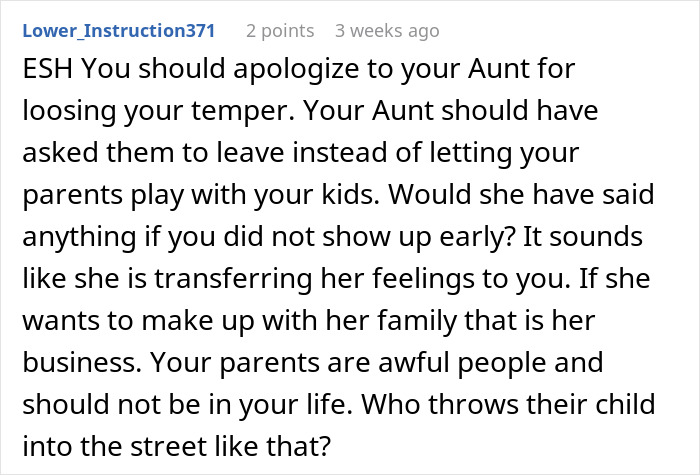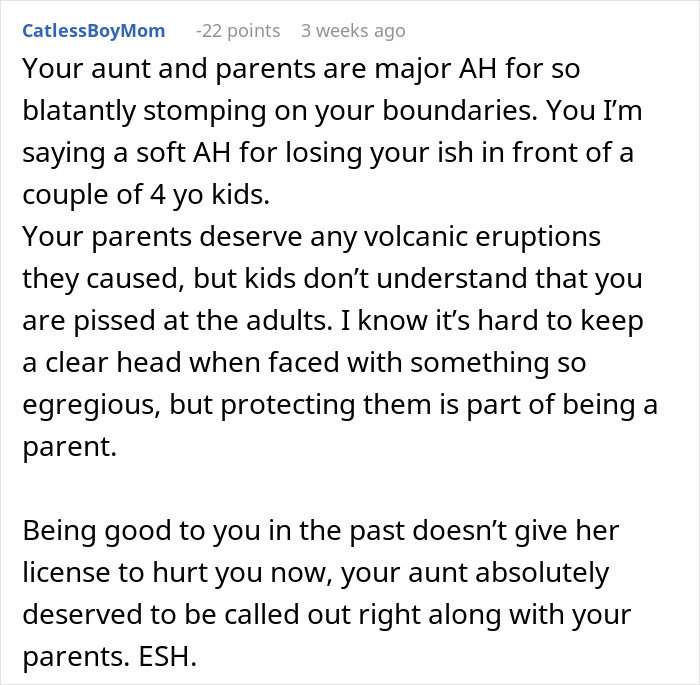“I love you no matter what,” are the words every person wishes to hear from their parents. Sadly, for many LGBTQ+ people, that’s a distant reality. 46% of young adults who identify as LGBTQ+ say they don’t speak to at least one family member. Sometimes, the wounds may be so deep they might not reconcile at all.
This bisexual man wasn’t ready to forgive his parents either, but his aunt put him in an impossible position. She let his parents meet his twin kids without his consent, making the whole situation worse and prompting him to take it out on her.
To learn more about reconciliation with estranged parents, Bored Panda reached out to licensed psychologist Nathan Brandon, Psy.D. He explained how hard it can be to reconcile with family members after estrangement and why the aunt’s betrayal is so hurtful to the OP.
A bisexual man forbade his aunt to let his parents meet his kids because they kicked him out at 15
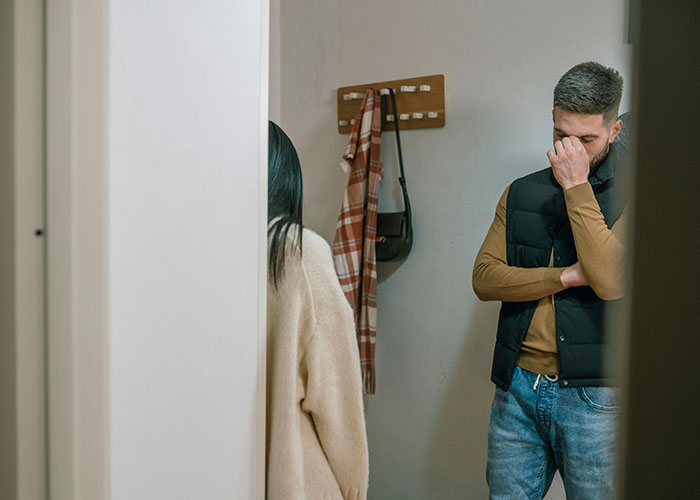
Image credits: Alena Darmel/Pexels (not the actual photo)
Yet she didn’t listen and let them meet anyway, prompting the man to explode on her
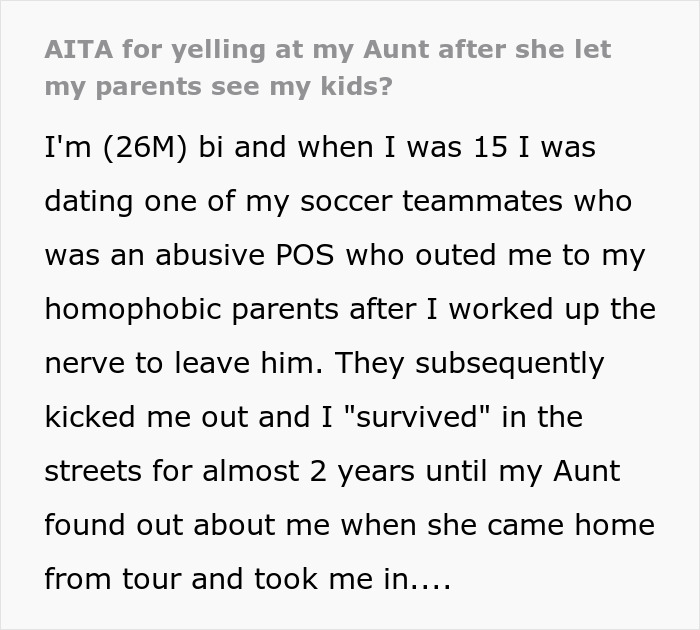
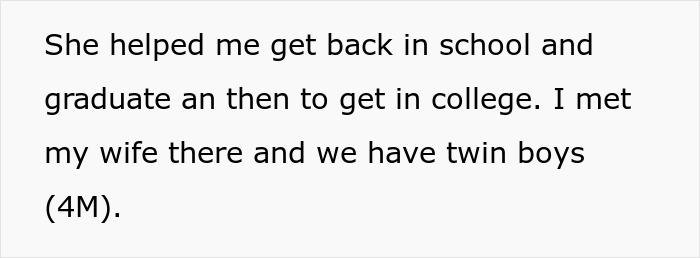
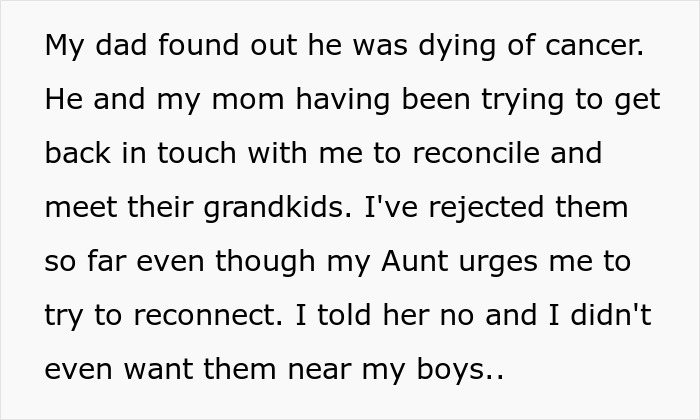
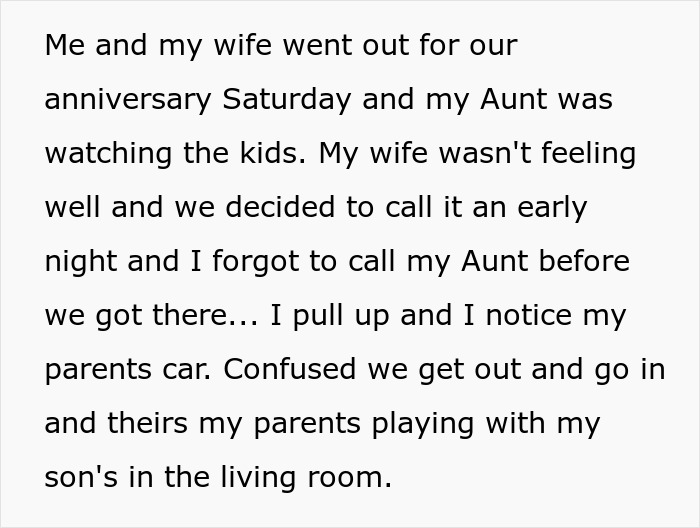
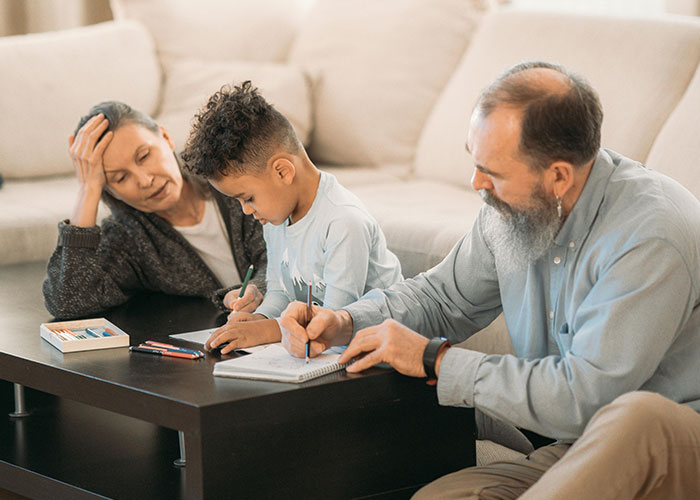
Image credits: Mikhail Nilov/Pexels (not the actual photo)
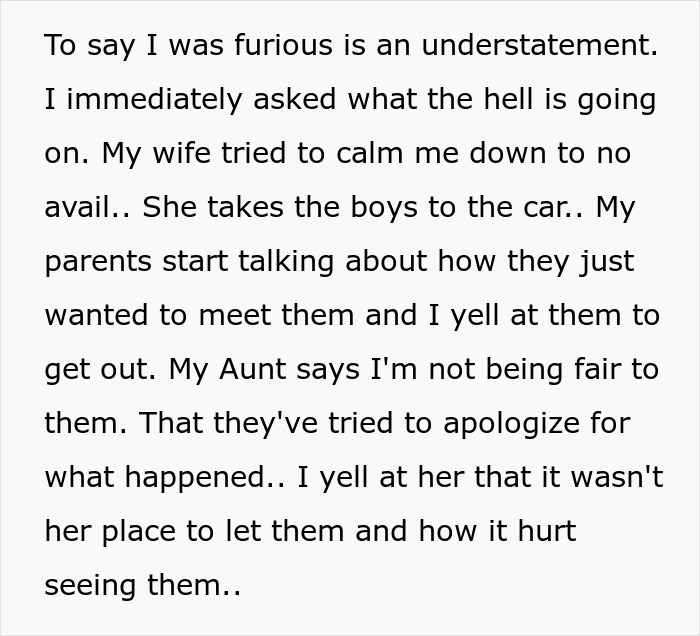
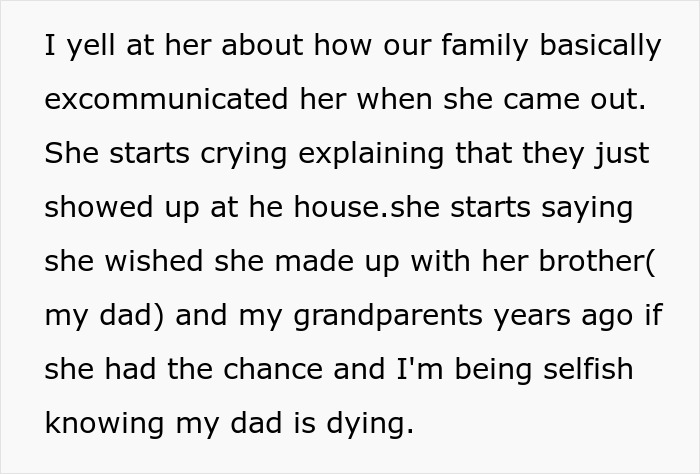
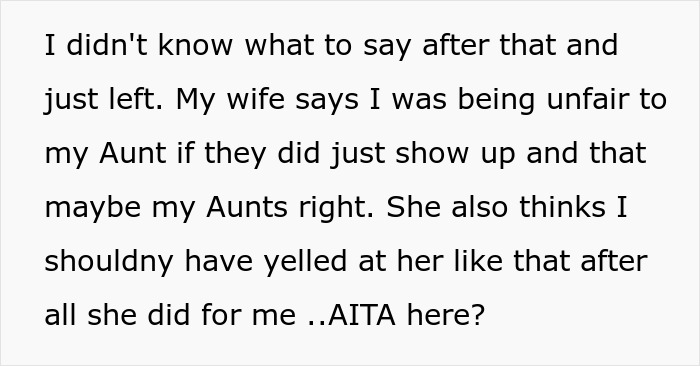
Image credits: Potential-Cheek-4551
Such a betrayal by another family member only deepens one’s mistrust in family relationships

Image credits: Ron Lach/Pexels (not the actual photo)
The OP describes his aunt as the person who took him in and helped him get on his feet after his parents rejected him. She was obviously a person he trusted, so this kind of betrayal and disrespect for his wishes hurt him significantly.
Licensed psychologist Nathan Brandon tells Bored Panda that betrayal might add one more layer of emotional pain, and make the OP mistrust the aunt. “For someone who has already endured rejection from their parents, the betrayal by a close relative like an aunt might intensify feelings of isolation, anger, and sadness,” he explains.
“It can further erode their trust in family relationships and reinforce the belief that their own needs and boundaries are not respected or valued. One may experience a heightened sense of vulnerability, self-doubt, and emotional turmoil as they grapple with this additional sense of betrayal.”
The aunt may have acted with her nephew’s best interest at heart, but disrespecting others’ boundaries is still wrong, even when you’re doing it with the best intentions. Dr. Brandon says that whether or not to reconcile is ultimately about one’s own well-being, safety, and personal growth.
Here are five things to consider when deciding whether or not to reconcile with estranged family members

Image credits: Andrea Piacquadio/Pexels (not the actual photo)
The decision of whether to reconcile with estranged family members is a tough one. Dr. Brandon explains that it’s complex and deeply personal. More so in this case, because it involves rejection due to sexual orientation.
But he offers the key factors to consider when making such a decision:
-
Emotional Well-being: “Reconciliation can have both positive and negative effects on a person’s emotional well-being,” Dr. Brandon says. “It is important to assess whether reconnecting with estranged family members will bring healing, support, and a sense of closure, or if it may further exacerbate emotional distress and harm.”
-
Safety and Boundaries: “Personal safety and the establishment of clear boundaries are crucial when considering reconciliation,” he goes on. “It is important to evaluate whether there is a genuine willingness on the part of the estranged family members to accept and respect one’s sexual orientation and whether the environment will be safe and supportive.”
-
Personal Growth and Empowerment: “Reconciliation should be weighed against opportunities for personal growth and empowerment,” Dr. Brandon tells Bored Panda. “This involves considering whether reconnecting with estranged family members has the potential to foster a healthier and more accepting relationship, or if it may hinder personal growth and perpetuate toxic dynamics.”
-
External Support: “Seeking guidance from mental health professionals or support groups (as well as other supportive family members) can be invaluable when making the decision to reconcile,” the psychologist says. “Professional insight can provide a neutral perspective, helping individuals evaluate their own needs, desires, and the potential outcomes of reconciliation.”
-
Consider How the Family Member May Have Changed: “It’s essential to consider how the estranged family member may have changed over time,” Dr. Brandon notes. “People grow, learn, and evolve, and it is possible that the family member in question has undergone personal growth and gained new perspectives.”
“Reflect on whether there have been any signs of openness, understanding, or a shift in their attitudes towards acceptance. Evaluating their capacity for change can provide insight into whether the relationship has the potential to be rebuilt on a foundation of mutual respect and acceptance.”
In the end, it’s a decision each person has to make for themselves. Every individual’s situation is unique, and, as Dr. Brandon emphasized, there is no one-size-fits-all answer.
The majority of people justified the man’s reaction, saying that the aunt violated his trust and boundaries


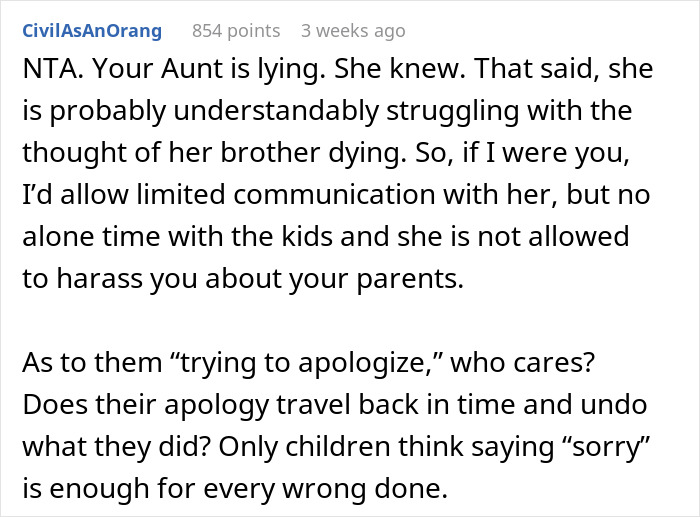

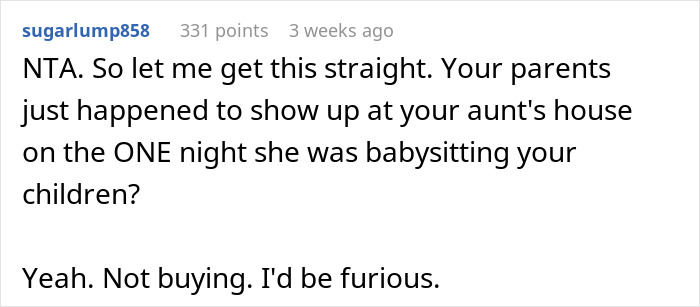
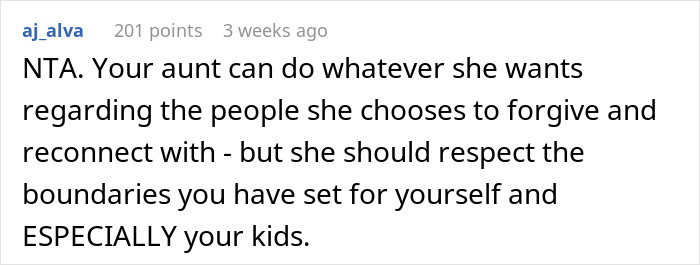
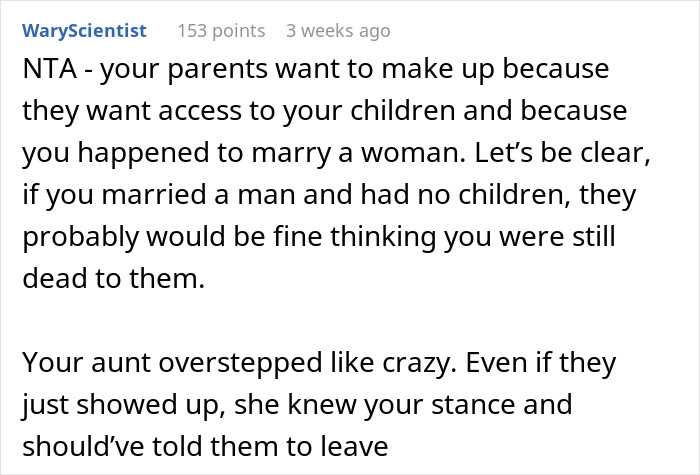

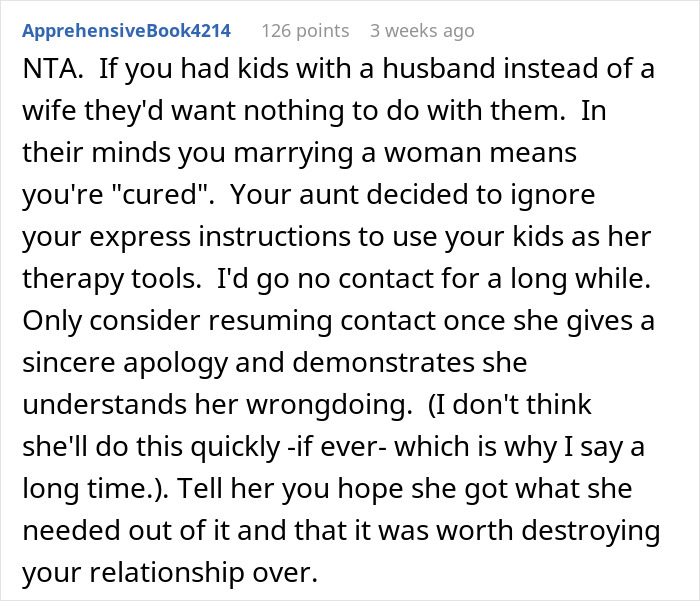




Others, however, believed that the OP ought to be nicer to his aunt and shouldn’t have made a scene in front of his children


